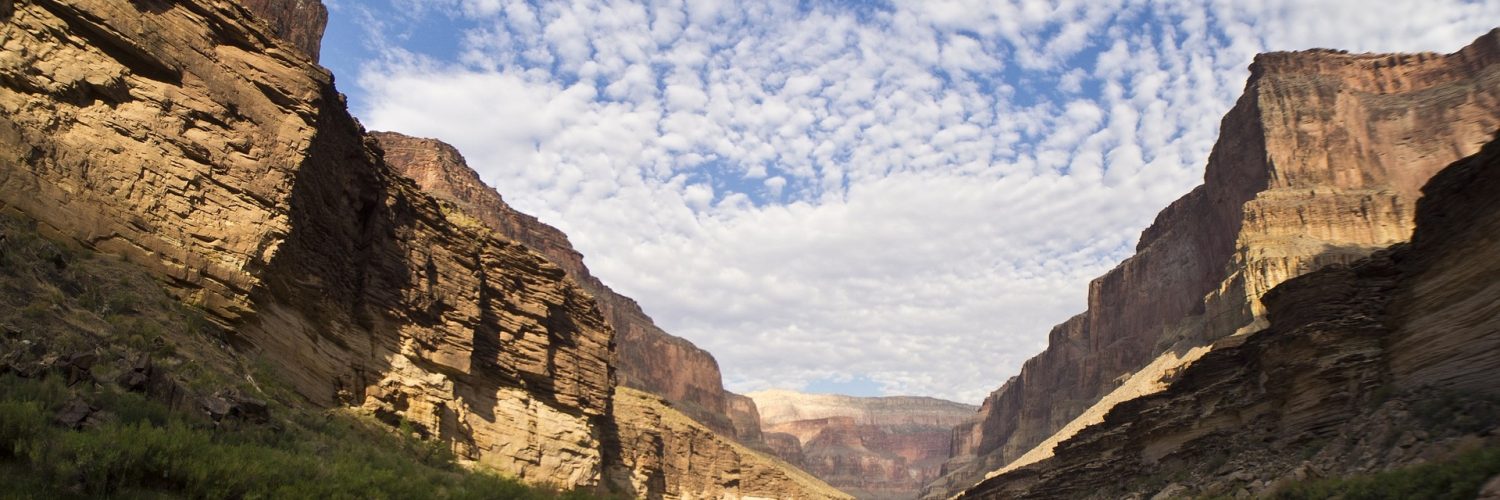As promised, two Arizona congressional members rushed to introduce bipartisan legislation Tuesday for the ratification of a seven-state drought contingency plan to protect the shrinking Colorado River.
At the same time, seven national conservation groups voiced support and urged quick ratification of the legislation.
“Declining reservoirs threaten water supplies that are essential to the economy, environment, and health of the southwestern United States,” states a letter to congress from groups including The Nature Conservancy, American Rivers, Environmental Defense Fund and the National Audubon Society. “Now is the time we all must work together for the sake of the future of the Basin. Therefore, it is critical that we support the goals of the DCP (drought contingency plan) agreements in both basins and urge your support for these agreements.”
Broad bipartisan support
Arizona’s Sen. Martha McSally (R) and Rep. Raúl Grijalva (D) took the lead in Congress, introducing the legislation Tuesday in both houses, less than a week after they held the first hearings on the bill.
Sen. McSally noted that the legislation was developed in a bipartisan, bicameral manner to ensure that the DCP – that was forged between the seven Colorado River Basin states, Indian tribes and Mexico – can be implemented without delay while fully respecting important environmental protections in the process.
Entitled the Colorado River Drought Contingency Plan Authorization Act, the legislation has unanimous support from Arizona’s congressional delegation.
“The DCP is a state-driven solution to ensure that we continue to provide drinking water to 40 million Americans, irrigation for 5.5 million acres of farmland, and more than 4,000 megawatts of carbon-free hydropower to communities across the West,” Sen. McSally said in a prepared statement, adding that she will work to “get it urgently signed into law.”
Grijalva also vowed quick ratification.
“States worked together, and now it’s time for Congress to work together and finish this process while we still have time,” Rep. Grijalva said in a written statement. “The House will move this bill quickly and the Senate should follow suit. Any foot-dragging or needless delay is going to worsen an already risky situation for the millions of people who rely on Colorado River water every day.”
No time to waste
The agreement reached between the seven states, called the Upper and Lower Basin Drought Contingency Plan (DCP), took years to get in place. Now, Congress must act quickly. The DCP needs to be in operation this summer to avert a water crisis.
The river’s two massive storage lakes – Lake Powell and Lake Mead – are disappearing from excessive drought. The elevations of the lakes, which are the two largest man-made reservoirs in the United States, have dropped fourfold in the last decade, Commissioner Brenda Burman of the federal Bureau of Reclamation testified during last week’s hearings.
“The period from 2000 through 2018 is the driest 19-year period in over 100 years and one of the driest periods in the 1,200-year paleo record,” she said.
Without the DCP, the lakes will likely drop to crisis levels by 2021 or 2022. With the DCP in place, that risk will be reduced 50 percent, Burman said.
Lake Powell serves the four upper basin states: Colorado, New Mexico, Utah and Wyoming. The lower basin states, Arizona, California and Nevada, rely on Lake Mead.
The bill and underlying drought plan agreement lay out water reduction, storage and conservation management strategies to avoid historic lows of the lake reservoirs.
Everyone came together to avert crisis
Numerous local, state, tribal and federal officials issued statements of support for the legislation including Arizona Gov. Doug Ducey. Ducey was instrumental in bringing competing Arizona water interests together to finalize the DCP.
“Securing our water future is one of the most important issues we face,” Gov. Doug Ducey said. “Earlier this year, Arizona showed we know how to get big things done by coming together to pass the historic Drought Contingency Plan – allowing Arizona to join the other basin states on a comprehensive plan to conserve more water.”
“Now, it’s Congress’ turn to move DCP forward. My thanks to Senator Martha McSally and Representative Raúl Grijalva for their leadership and urgency and to all members of Arizona’s delegation for making this issue a priority. Let’s show the country we can still work together to do the things that matter. Let’s get this done.”
















Add comment